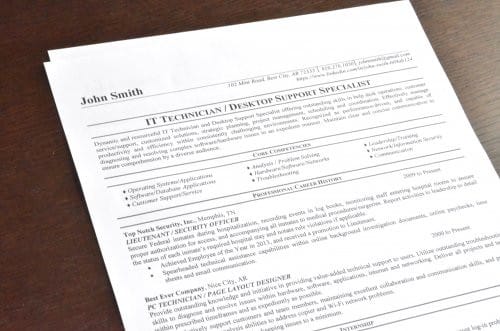- Determine Your Worth
- Average Salaries In The US
- What Is A Salary Range?
- What Is A Base Salary?
- What Is A Pay Grade?
- Average Salary Out Of College
- Your Salary History
- Competitive Pay
- Salary Vs. Hourly Pay
- What Is A Job Classification?
- How Many Hours Can A Teen Work?
- Average Work Hours Per Week
- What Is Annual Income
- Gross Salary
- How Many Hours Is Full Time
- How Many Work Hours In A Year
- Minimum Wage For Workers Who Receive Tips
- New York State Minimum Wage Rates
- Get A Raise
- Benefits
- Paid Time Off Policy (PTO)
- Leave of Absence Policy
- What Are Floating Holidays?
- What Are Employer-Paid Holidays?
- How Does Holiday Pay Work
- How Does A Stipend Work
- Cash a Paycheck Without a Bank Account
- What Is Compensatory Time?
- What's Unlimited Vacation?
- What Is A Commission?
- What Is A Mileage Deduction?
- Semimonthly Vs Biweekly Pay Schedules
- Flexible Spending Account
- Stock Options At Job
- Benefits Package
- Overtime Pay
- Workers Comp
- What Is Fmla
- Hazard Pay
- Tuition Reimbursement
- Discretionary Vs. Non-Discretionary Bonus
- What Are Union Benefits
- What Is An HRA Account
- What Is Cobra Insurance
- Negotiation
- What Exactly Is a Job Offer?
- How To Negotiate Salary
- Exempt Employee
- How To Answer Salary Requirements
- Employment History
- What Are Your Salary?
- Salary Counter Offer
- How To Answer Salary Expectations
- How Many Hours Is Part Time
- Signing Bonus
- Cost Of Living Adjustment
- How To Ask For A Salary Advance
- What Is Fair Labor Standards Act
Find a Job You Really Want In
Complying with minimum wage laws can be complicated if your employees regularly earn tips on the job.
There are a variety of separate federal and state rules that depend on several different factors.
In this article, we’ll discuss how minimum wage regulations for tipped employees differ based on several of these major factors, such as your location, company size, and industry.
How to Determine if Your Employees Classify as Tipped Employees
There are separate federal and state laws that define what workers are considered tipped employees. These are:
-
Federal law. A tipped employee is any worker who customarily and regularly receives at least $30 per month in tips.
-
State laws. A number of states have set a lower monthly tip requirement of $20 for classifying tipped employees.
These states are:
Some states also follow higher requirements:
-
Alabama. $35 per month.
-
Vermont. $120 per month.
-
Connecticut. $10 per week.
The lower minimum requirement between federal and state laws is the one that takes precedence.
-
How Tipped Minimum Wage is Calculated
Each state sets its own tipped minimum wage that employers must pay all employees classified as tipped workers.
Tipped minimum wage is comprised of:
-
Basic cash wage. The minimum wage that employers must pay directly to employees, regardless of how much they earn in tips.
Federal law dictates a minimum basic cash wage of $2.13 per hour, as of January 11, 2021. The total tipped minimum wage is $7.25.
If a state also has its own minimum, the higher wage between the two takes precedence.
-
Tip credit. Each state sets a certain tip credit cap. This is the maximum amount that employers are allowed to count towards their employees’ total tipped minimum wage.
For example, consider a restaurant that has to follow a $15.00 tipped minimum wage, comprising a $10.00 minimum basic cash wage and $5.00 tip credit.
If Joe, a tipped worker, earns $3.00 in hourly tips, the restaurant must supplement them with a cash wage of $12.00 in order to reach the $15.00 total minimum.
If that same worker earns an average of $7.00 in tips per hour, the restaurant must still pay them $10.00, as only $5 of that $7 may contribute towards the tip credit.
Tipped Minimum Wage Laws for Different States
It’s important to stay aware of each state’s tipped minimum wage to ensure that your company is complying with all labor laws.
Here’s a simple breakdown of each state’s requirements in 2021. The following figures are taken from the United States Department of Labor’s State Labor Laws database:
-
Federal level. Tipped minimum wage: $7.25
Minimum cash wage: $2.13
Maximum tip credit: $5.12 -
Alaska. Tipped minimum wage: None
Minimum cash wage: $10.34
Maximum tip credit: None -
Alabama. Tipped minimum wage: None
Minimum cash wage: $2.13
Maximum tip credit: None -
American Samoa. Tipped minimum wage: None
Minimum cash wage: Special wage rates
Maximum tip credit: None -
Commonwealth of the Northern Mariana Islands. Tipped minimum wage: None
Minimum cash wage: $7.25
Maximum tip credit: None -
Guam. Tipped minimum wage: None
Minimum cash wage: $8.25
Maximum tip credit: None -
Georgia. Tipped minimum wage: None
Minimum cash wage: $2.13
Maximum tip credit: None -
Indiana. Tipped minimum wage: $7.25
Minimum cash wage: $2.13
Maximum tip credit: $5.12 -
California.. Tipped minimum wage: None
Minimum cash wage: $13.00 for small employers and $14.00 for large employers.
Maximum tip credit: None -
Minnesota. Tipped minimum wage: None
Minimum cash wage: $8.21 for small employers and $10.08 for large employers.
Maximum tip credit: None -
Montana. Tipped minimum wage: None
Minimum cash wage: $8.75 for businesses grossing annual sales over $110,000 and $4.00 for all others.
Maximum tip credit: None -
Nevada. Tipped minimum wage: None
Minimum cash wage: $7.25 for employers providing health insurance and $8.25 for all others.
Maximum tip credit: None -
Oregon. Tipped minimum wage: None
Minimum cash wage: $11.25
Maximum tip credit: None -
Washington. Tipped minimum wage: None
Minimum cash wage: $13.69
Maximum tip credit: None -
Arizona. Tipped minimum wage: $12.15
Minimum cash wage: $9.15
Maximum tip credit: $3.00 -
Arkansas. Tipped minimum wage: $11.00
Minimum cash wage: $2.63
Maximum tip credit: $7.37 -
Colorado. Tipped minimum wage: $12.32
Minimum cash wage: $9.30
Maximum tip credit: $3.02 -
Connecticut. Tipped minimum wage: $12.00
Minimum cash wage: $6.38 for hospitality workers and $8.23 for bartenders. None for all others.
Maximum tip credit: $5.62 for hospitality workers and $3.77 for bartenders. None for all others. -
Delaware. Tipped minimum wage: $9.25
Minimum cash wage: $2.23
Maximum tip credit: $7.02 -
District of Columbia. Tipped minimum wage: $15.00
Minimum cash wage: $5.00
Maximum tip credit: $10.00 -
Florida. Tipped minimum wage: $8.65
Minimum cash wage: $5.63
Maximum tip credit: $3.02 -
Hawaii. Tipped minimum wage: $10.10
Minimum cash wage: $9.35
Maximum tip credit: $0.75 -
Idaho. Tipped minimum wage: $7.25
Minimum cash wage: $3.35
Maximum tip credit: $3.90 -
Illinois. Tipped minimum wage: $11.00
Minimum cash wage: $6.60
Maximum tip credit: Currently $4.40, but is always set at 40% of total tipped minimum wage. -
Iowa. Tipped minimum wage: $7.25
Minimum cash wage: $4.35
Maximum tip credit: $2.90 -
Maine. Tipped minimum wage: $12.15
Minimum cash wage: $6.08
Maximum tip credit: $6.07 -
Maryland. Tipped minimum wage: $11.00
Minimum cash wage: $3.63
Maximum tip credit: $7.37 -
Massachusetts. Tipped minimum wage: $13.50
Minimum cash wage: $5.55
Maximum tip credit: $7.95 -
Michigan. Tipped minimum wage: $9.65
Minimum cash wage: $3.67
Maximum tip credit: $5.98 -
Missouri. Tipped minimum wage: $10.30
Minimum cash wage: $5.15
Maximum tip credit: Currently $5.15, but is always set at 50% of total tipped minimum wage. -
New Hampshire. Tipped minimum wage: $7.25
Minimum cash wage: $3.26
Maximum tip credit: $3.99 -
New Jersey. Tipped minimum wage: $12.00
Minimum cash wage: $4.13
Maximum tip credit: $7.87 -
New Mexico. Tipped minimum wage: $10.50
Minimum cash wage: $2.55
Maximum tip credit: $7.95 -
New York. Tipped minimum wage: $12.50
Minimum cash wage: $8.35 for food service workers, none for others.
Maximum tip credit: $10.40 for food service workers, none for others. -
North Dakota. Tipped minimum wage: $7.25
Minimum cash wage: $4.86
Maximum tip credit: Currently $2.39, but always set at 33% of total tipped minimum wage -
Ohio. Tipped minimum wage: $8.80
Minimum cash wage: $4.40
Maximum tip credit: $4.40 -
Oklahoma. Tipped minimum wage: $7.25
Minimum cash wage: $2.13
Maximum tip credit: $5.12 -
Pennsylvania. Tipped minimum wage: $7.25
Minimum cash wage: $2.83
Maximum tip credit: $4.42 -
Rhode Island. Tipped minimum wage: $11.50
Minimum cash wage: $3.89
Maximum tip credit: $7.61 -
South Dakota. Tipped minimum wage: $9.45
Minimum cash wage: $4.725
Maximum tip credit: $4.725 -
Vermont. Tipped minimum wage: $11.75
Minimum cash wage: $5.875
Maximum tip credit: $5.875 -
The Virgin Islands. Tipped minimum wage: $10.40
Minimum cash wage: $4.20
Maximum tip credit: $6.30 -
Wisconsin. Tipped minimum wage: $7.25
Minimum cash wage: $2.33
Maximum tip credit: $4.92 -
West Virginia. Tipped minimum wage: $8.75
Minimum cash wage: $2.62
Maximum tip credit: $6.13 -
Delaware. Tipped minimum wage: $9.25
Minimum cash wage: $2.23
Maximum tip credit: $7.02 -
Kansas. Tipped minimum wage: $7.25
Minimum cash wage: $2.13
Maximum tip credit: $5.12 -
Kentucky. Tipped minimum wage: $7.25
Minimum cash wage: $2.13
Maximum tip credit: $5.12 -
Louisiana. Tipped minimum wage: None
Minimum cash wage: $2.13
Maximum tip credit: None -
Mississippi. Tipped minimum wage: None
Minimum cash wage: $2.13
Maximum tip credit: None -
Nebraska. Tipped minimum wage: $9.00
Minimum cash wage: $2.13
Maximum tip credit: $6.87 -
North Carolina. Tipped minimum wage: $7.25
Minimum cash wage: $2.13
Maximum tip credit: $5.12 -
Puerto Rico. Tipped minimum wage: $7.25
Minimum cash wage: $2.13
Maximum tip credit: $5.12 -
South Carolina. Tipped minimum wage: None
Minimum cash wage: $2.13
Maximum tip credit: None -
Texas. Tipped minimum wage: $7.25
Minimum cash wage: $2.13
Maximum tip credit: $5.12 -
Utah. Tipped minimum wage: $7.25
Minimum cash wage: $2.13
Maximum tip credit: $5.12 -
Virginia. Tipped minimum wage: $7.25
Minimum cash wage: $2.13
Maximum tip credit: $5.12 -
Wyoming. Tipped minimum wage: $7.25
Minimum cash wage: $2.13
Maximum tip credit: $5.12
How to Determine if Your Employees Classify as Tipped Employees
The Fair Labor Standards Act (FLSA) dictates many additional laws regarding tipped employees that are lesser-known but still extremely important.
Here are a few major ones:
-
Service charges. Compulsory service charges cannot be considered as tips and are instead part of the employer’s gross receipts.
A common example is a restaurant dictating a 15% service charge for large groups.
If employers pay their employees a percentage of a service charge, that sum is considered part of the employee’s cash wage rather than a tip.
-
Salaries and stipends. Salaries paid to employees are counted towards satisfying minimum wage requirements. The same does not apply to stipends.
-
Credit cards. When tips are charged on a credit card, the credit companies typically receive a small percentage of the total.
Employers are allowed to pay their employees the remaining percentage of the tips without violating the FLSA. However, the charge on the tip may not reduce the worker’s wage below minimum wage.
-
Employment sector. Minimum wage laws apply to both public and private sector positions.
Public sector jobs often use pay grades to determine their employees’ wages and salaries. However, the lowest payment tier must still exceed minimum wage requirements.
-
Tip retention. Regardless of whether employers decide to include their employee’s tips towards the tip credit, they may not require their workers to turn over their tips.
Once an employee receives a tip, the tip becomes the sole property of the worker.
- Determine Your Worth
- Average Salaries In The US
- What Is A Salary Range?
- What Is A Base Salary?
- What Is A Pay Grade?
- Average Salary Out Of College
- Your Salary History
- Competitive Pay
- Salary Vs. Hourly Pay
- What Is A Job Classification?
- How Many Hours Can A Teen Work?
- Average Work Hours Per Week
- What Is Annual Income
- Gross Salary
- How Many Hours Is Full Time
- How Many Work Hours In A Year
- Minimum Wage For Workers Who Receive Tips
- New York State Minimum Wage Rates
- Get A Raise
- Benefits
- Paid Time Off Policy (PTO)
- Leave of Absence Policy
- What Are Floating Holidays?
- What Are Employer-Paid Holidays?
- How Does Holiday Pay Work
- How Does A Stipend Work
- Cash a Paycheck Without a Bank Account
- What Is Compensatory Time?
- What's Unlimited Vacation?
- What Is A Commission?
- What Is A Mileage Deduction?
- Semimonthly Vs Biweekly Pay Schedules
- Flexible Spending Account
- Stock Options At Job
- Benefits Package
- Overtime Pay
- Workers Comp
- What Is Fmla
- Hazard Pay
- Tuition Reimbursement
- Discretionary Vs. Non-Discretionary Bonus
- What Are Union Benefits
- What Is An HRA Account
- What Is Cobra Insurance
- Negotiation
- What Exactly Is a Job Offer?
- How To Negotiate Salary
- Exempt Employee
- How To Answer Salary Requirements
- Employment History
- What Are Your Salary?
- Salary Counter Offer
- How To Answer Salary Expectations
- How Many Hours Is Part Time
- Signing Bonus
- Cost Of Living Adjustment
- How To Ask For A Salary Advance
- What Is Fair Labor Standards Act





